BLOG
Oracle to build cluster of 30,000 AMD MI355X GPUs
Oracle has signed an agreement with AMD to develop a cluster of 30,000 AMD MI355X GPUs.The company revealed that it had signed an agreement in Q3 2025 with the chipmaker during its earnings call earlier this month.
The AMD MI355X GPUs are slated to arrive by mid-2025. They are manufactured with TSMC's 3nm node and built with AMD's CDNA 4 architecture. Each GPU has 288GB of HBM3E memory and a bandwidth of up to 8Tbps.
The chips operate at a TDP of 1,100W, thus necessitating liquid cooling.
The Techradar report describes them as a "strong rival" to Nvidia's B100 and B200s.
The AMD contract was not Oracle's only large win for the quarter, with the company set to deploy 64,000 Nvidia GB200s for OpenAI at a data center in Abilene, Texas, which it leases from Crusoe.
Oracle is not a new customer to AMD. While the company is a big purchaser of rival Nvidia's GPUs, September 2024 saw the company use AMD Instinct MI300X GPUs for its OCI Compute Supercluster, which is able to support up to 16,384 GPUs.
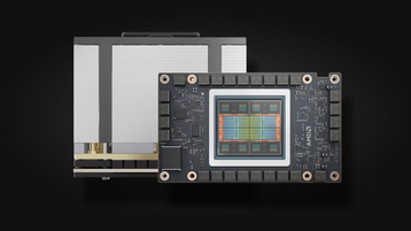
Ceramic long-term storage startup Cerabyte secures investment from In-Q-Tel
Ultra long term storage company Cerabyte has secured investment from In-Q-Tel, a venture firm funded by the US Central Intelligence Agency (CIA).
The startup is developing a ceramic storage system it says can last more than 5,000 years. The company deposits a ceramic nanolayer on a thin substrate, using laser pulses to write data on the layer. It previously said it aimed to launch a 1PB rack demo system in 2024, a 5PB per rack system by 2025, and as much as 100PB per rack in 2028-30.
Founded in 1999 by a former CEO of Lockheed Martin, In-Q-Tel invests in companies that serve US national security interests, with a focus on technologies that help intelligence agencies such as the CIA and FBI.
Other technology companies funded by In-Q-Tel include quantum computing firms D-Wave, IonQ, Infleqtion, and Xanadu; liquid cooling firm JetCool; containerized data center company Armada; storage firm NetApp; and OT security firm Nozomi.
According to Crunchbase, Cerabyte has raised around $7.7 million to date. It has previously secured funding from Pure Storage and the European Union’s EIC Accelerator.

Apple to spend $1bn on Nvidia GB300 NVL72 systems
Apple could be set to spend around $1 billion on Nvidia GB300 NVL72 systems.
As reported by Investor's Business Daily, Loop Capital analyst Ananda Baruah said that the company's order represents around 250 servers sold at $3.7m to $4m each.
According to Baruah, the company will use servers from Dell Technologies and Super Micro Computer (SMCI) powered by the Nvidia GB300s for the cluster that will be used for generative AI applications.
Baruah speculated that the investment could be motivated by Apple's struggle to bring its AI-enabled Siri assistant to market, which it had hoped would be available early this year.
A large-scale investment in Nvidia chips is a shift in Apple's AI strategy thus far.
In July 2024, the company published a research paper that suggested it was using Google's Tensor Processing Units (TPUs) to train its AI models, omitting any mention of Nvidia GPUs.
The Nvidia GB300 NVL72 is a fully liquid-cooled rack-scale offering. Its features 72 Nvidia Blackwell Ultra GPUs, and 36 Nvidia Grace CPUs. The Blackwell Ultra was revealed at Nvidia's GTC event earlier this month. Nebius and YTL are set to offer the hardware via their cloud offerings, among others.
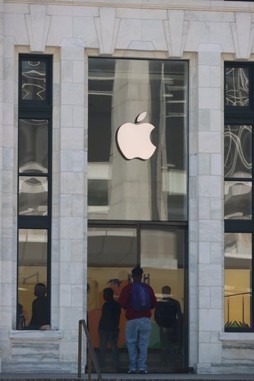
Nscale to expand Glomfjord data center in Norway with 30MW building
AI cloud firm Nscale is to expand its data center site in Glomfjord, Norway.
The company has partnered with prefab data center provider InfraPartners to add 30MW of capacity next to Nscale’s existing 30MW facility in the Glomfjord Industrial Park.
The new liquid-cooled facility, set to go live in Q2 2025, will host ‘the latest generation’ of GPUs according to Nscale.
Nscale officially launched in May 2024 after being spun out from cryptomining firm Arkon Energy. The company offers a GPU cloud based on AMD hardware, specifically AMD's Instinct M1300X accelerators as well as AMD MI250 GPUs and Nvidia’s GB200, H100, and H200 GPUs.
The company operates the Glomfjord site that was previously owned by Arkon, and claims to have a pipeline totaling more than 1.3GW, with more than 500MW of greenfield data centers planned across the US.
InfraPartners has previously partnered with advisory firm Caddis Cloud Solutions with the aim of bringing more data center capacity online in the US.
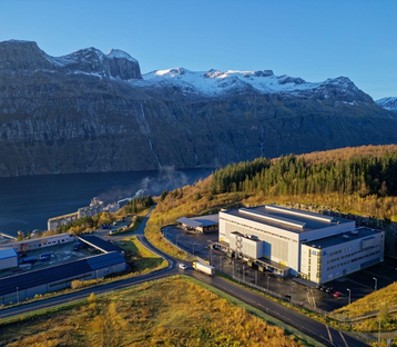
Stack announces 36MW data center in Chicago, Illinois
Data center firm Stack Infrastructure is expanding its footprint in Chicago, Illinois.
The company this week announced a 36MW data center in Elk Grove Village, known as CHI02.
Set on 18 acres, the two-story, 263,000 sq ft (24,433 sqm) data center will be located around a mile away from the company’s existing CHI01 campus. It will feature a close-loop cooling system able to support air and liquid cooling.
Stack’s first Chicago data center, at 1441 Touhy Avenue, used to belong to T5 Data Centers before the company combined facilities with IPI Partners in 2019. T5 had bought it in 2016 from IT integrator Forsythe Technology, a year after it launched. Plans for a second building at the original campus were announced in 2019.
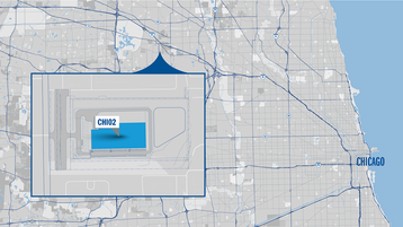
KT Cloud to establish AI Data Center demonstration center in Seoul, South Korea
KT Cloud is set to establish an AI Data Center Demonstration Center in Seoul, South Korea.The demonstration center will be used to explore operation strategies for sustainable and efficient AI data centers.
Set to launch in November 2025, the demonstration center will be located at KT's Mok-dong DC 2 Center in the Yangcheon District of Seoul.
As reported by BusinessKorea, the demonstration center will enable KT Cloud to use AI-based automated data center operation technologies and partner with companies to optimize power consumption, cooling, and network operations. The company also intends to deploy liquid cooling and use renewable energy at the data center.
Following the November launch of the demonstration center in the Mok-dong data center, KT aims to develop an independent AI DC Demonstration Center in a dedicated space in phases. The independent center will be energy self-sufficient and fully autonomous and is aimed to be completed by 2028.
In September 2024, parent company KT Corporation signed a contract with Microsoft that would see KT providing $450 million worth of network and data center infrastructure to Microsoft over the next 15 years. In addition, the two companies are working on Secure Public Cloud services in South Korea, which would be KT’s sovereign cloud solution built on Microsoft Cloud for Sovereignty for Korean-regulated industries such as public and financial sectors.
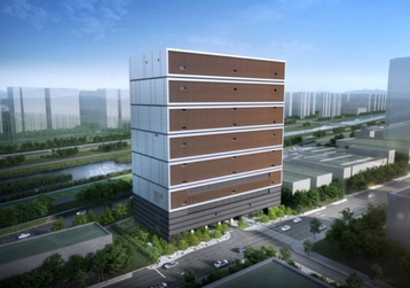
AirNet announces 130MW Kazakhstan data center for Bitcoin mining re-entry
AirNet Technology Inc., a firm formerly focused on the in-flight technology sector, has announced plans for a 130MW Bitcoin mining data center in Kazakhstan.
AirNet’s recently announced partnership with LLP STH Corp, a Kazakhstan company, paves the way for the construction of a 130MW mining site at an unspecified location in Kazakhstan.
Part of the facility will be powered by the national grid (70MW) and part will be powered by a natural gas self-generation facility (60MW). It will also utilize liquid-cooling technology.
AirNet (formerly known as AirMedia Group Inc.) diversified into Ethereum mining in 2021 following the negative impact of Covid-19 on the commercial flight industry, which impacted its core in-flight technology business.
Now, AirNet has announced plans to re-enter the cryptocurrency mining space by switching its focus to Bitcoin mining, which, unlike Ethereum, still utilizes a Proof-of-Work consensus mechanism.
Bitcoin’s Proof-of-Work consensus relies on a global network of miners who utilize specific mining hardware to compete to solve an arbitrary mathematical puzzle, securing the network and validating transactions. The successful miner is rewarded with block rewards as an incentive (currently set at 3.125 BTC).

Chipmaker Rapidus could get another $5.4bn from the Japanese government
Japan’s government has earmarked an additional ¥802.5 billion ($5.4bn) to invest in chipmaking startup Rapidus. It means the amount of public money committed to Rapidus now stands at a maximum of ¥1.72 trillion ($11.46bn).
Tokyo is keen to bolster its domestic semiconductor production capabilities in light of the ongoing trade war between the US and China, which poses a threat to the stability of chip supply chains.
Rapidus was founded in November 2022 by the Japanese government and industry partners, including SoftBank, Sony, and NTT, with the aim of boosting domestic chip production. At the time, it was said the company would develop sub-2 nanometer chips using technology licensed from IBM.
Last year, the Japanese government committed some ¥10 trillion ($65bn) to back advanced chip production, with some of these funds earmarked for Rapidus. The move proved controversial, with some politicians criticizing the plan because it involved redirecting Covid-19 relief money that was meant to help SMEs.
Japan was once a powerhouse of semiconductor production but, like the rest of the world, has come to heavily rely on advanced chips manufactured in Taiwan by TSMC. Ongoing hostilities between the US and China mean Taiwan's future is uncertain, and this has led governments around the world to take steps to reshore chip production.
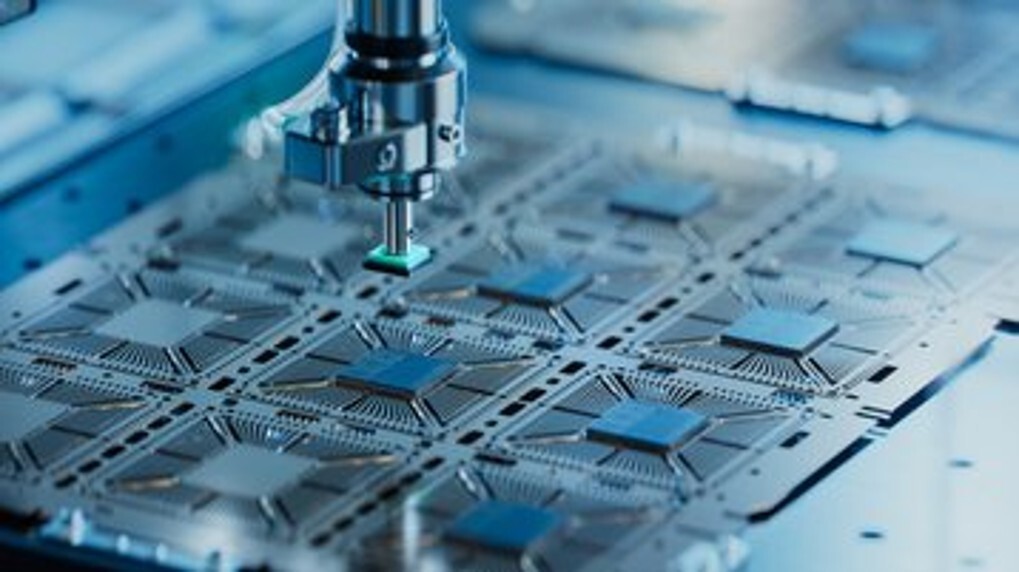
Leave A Reply
LOGO
This stunning beach house property is a true oasis, nestled in a serene coastal community with direct access to the beach.
Opening Hours
Monday - Friday : 9AM to 5PM
Sunday: Closed
Closed during holidays
Contact
+18888888888
hezuo@eyingbao.com123 West Street, Melbourne Victoria 3000 Australia



